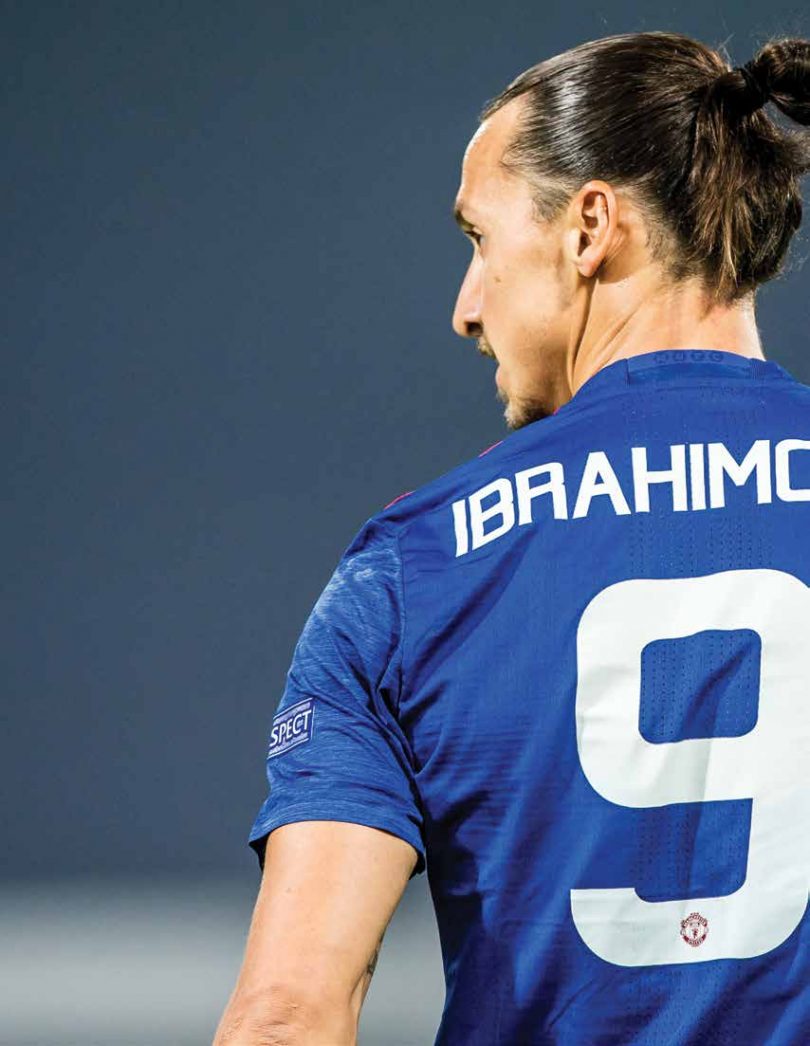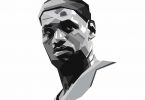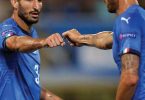Twelve months in England’s Premier League was all Zlatan Ibrahimović needed to make a lasting impression. And although a knee injury cut his time there short, it’s unlikely European football has seen the last of this remarkable player.
I came, I said, I conquered. This is the last sentence Zlatan Ibrahimović uttered before exiting the Premier League. A simple but sensational farewell. A short stop for the glorious striker. A legend. At the age of 35, he helped bring Manchester United two trophies, including that sensational run through the Europa League, scoring 28 goals in all competitions before bowing out in cruel fashion by suffering a serious knee injury in April.
As a footballer, Ibrahimović was unprecedented. Arrogant yet elegant, eloquent but quiet, Ibra can only be de ned by himself. He is a player whose cumulative transfer fees top the global list at £133.2 million, while his feats will soon be recognized in his home nation of Sweden with a statue outside his national football stadium at Stockholm. Even among opposition fans, Ibrahimović has earned respect, admiration and awe.
Known as much for his unconventional approach as his penchant for the spectacular, Ibrahimović even moved to England in a 21st century way – taking to social media to ask where he should play following his highly successful four year stint with Paris St Germain. When his agent, Mino Raiola, convinced him to join PSG back in 2012, the Swedish striker was at first reluctant but chose to trust the agent who had helped him play for Ajax, then Juventus, where he learned from the great Czech mid elder Pavel Nedvěd. Nedvěd, one of Raiola’s early clients, was the type of football player tagged by the agent as an “extremist” – training and playing in a way few others could dream of. By uniting these two players at the same club, Raiola not only ensured the best deal for young Ibra but also provided him a life-long idol to look up to. To this day, Ibrahimović has built a reputation as training harder than anyone and playing without fear, even at the age of 35.
In England, Ibra didn’t talk too much and kept a low pro le, but as usual when he did speak it was always worth listening. He didn’t want to compare himself to other Premier League strikers such as Romelu Lukaku who was strong, or Sergio Aguero who was “complete”, because he felt he was “a true lion”, “an animal” and that “a lion will not be compared with a human being.”
On the few of occasions Ibra did speak to the media, he would always mention how hard he was on his training and that he had set himself a goal. After he reached 28 goals with a brace against Sunderland, Ibra was so con dent that he called himself “Benjamin Button” after the movie character who was “born old but died young.” By living with discipline, training like a beast and playing like a lion, he has improved with age.
Ironically, Ibra’s season was cut short just a few days after he complained there were too many games played in England with no break in winter – ligament damage in his knee cruelling his chances of lifting the Europa League trophy with his Manchester United teammates in front of his home Stockholm crowd. At the end of June, his departure from United was officially announced.
Yet even with a long rehabilitation still ahead of him, Ibrahimović has no shortage of suitors. Since setting off on his journey from Malmöin in Sweden, he has played in the Netherlands, Italy, Spain, France and England and collected as many as 31 major trophies. Germany’s Bundesliga is the only major league to miss out on his unique talents. Is now the right time to bow out?
At 35 years of age and an unquestionably glorious career to look back on, many players might choose to hang up the boots after suffering such a serious injury, but not the “lion”. Raiola has already stated that Ibra will play again in Europe – and such prophecies from Raiola usually come true. As for the man himself?
As Ibrahimović promised the English press upon arrival – he came, he said, he conquered.







